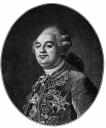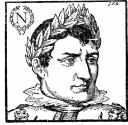 |
||||||||||||||||||||||||||||||||||||||
| Contact
Dr. Justice Course Policies Goals Textbook Assignments Study Guide Index Authors List History Notes Glossary Text Version Site Map Home Page |
The reading for August 29 includes The Romantics and Their Contemporaries, pp. 3-28 and Blake, "Songs of Innocence and of Experience," some of which you will find below. Blake's "Songs of Innocence and of Experience" begin on page 119 of the textbook. Please read carefully before the class period.
The Chimney Sweeper 1 When my mother died I was
very young Theses little Tom Dacre,
who cried when his head And so he was quiet, &
that very night, And by came an Angel who
had a bright key, Then naked & white,
all their bags left behind, And so Tom awoke and we
rose in the dark
1.
Chimney-sweeps were young children, mostly boys, whose impoverished
parents sold them into the business, or who were orphans, outcasts,
or illegitimate children with no other means of living. It was filthy,
health-ruining labor, aggravated by overwork and inadequate clothing,
food and shelter. Among the hazards were burns, permanently blackened
skin, deformed legs, black lung disease and cancer of the scrotum. Protective
legislation passed in 1788 was never enforced. Blake's outrage at this
exploitation also sounds in "London.' Admiring the poem, Charles
Lamb sent it to James Montgomery (a topical poet and radical-press editor)
for inclusion in The Chimney-Sweeper's Friend, and Climbing
Boy's Album (1824), which he was assembling for the Society for
Ameliorating the Condition of Infant Chimney-Sweepers.
Please refer to the study questions below for " The Chimney Sweeper ," " The Little Black Boy ," " The Clod and the Pebble ," " The Tyger ," " The Sick Rose ," " The Garden of Love ," "London," and "The Poison Tree.".
"The
Chimney Sweeper" "The
Little Black Boy" "The
Cod and the Pebble" "The
Tyger" "The
Sick Rose" "The
Garden of Love" "London" "A Poison Tree"
William Blake 1757-1827 It was from Blake's Marriage of Heaven and Hell that a sensationally transgressive rock band of the 1960s, the Doors, took their name: If the doors of perception were cleansed every thing would appear to man as it is: In- -finite. But unlike the Doors, Blake needed no pharmaceutical assistance in cleansing his vision. His eccentricity and imaginative intensity, which seemed like madness to more than a few contemporaries, emerged from a childhood punctuated by such events as beholding God's face pressed against his window, seeing angels among the haystacks, and being visited by the Old Testament prophet Ezekiel. When his favorite brother died in 1787, Blake claimed that he saw his "released spirit ascend heavenwards, clapping its hand for joy." Soon after, he reports, this spirit visited him with a critical revelation of the method of "Illuminated Printing" that he would use in his major poetical works. Rebellious, unconventional, fiercely idealistic, Blake became a celebrity in modern counterculture—Allen Ginsberg and many of the Beat poets of the 1950s and 1960s cited him as a major influence. But for a good part of the nineteenth century, he was known only to a coterie. He did not support himself as a poet but got by on patronage and commissions for engraving and painting. His projects included the Book of Job and other scenes from the Bible; Chaucer's Canterbury Pilgrims; characters in Spenser's Faerie Queene; Milton's L'Allegro, Il Penseroso, Paradise Lost, and Paradise Regained; Gray's The Bard; Young's Night Thoughts; and Blair's The Grave. His obscurity as a poet was due in part to the difficulty of his work after the mid-1790s but chiefly to the very limited issue of his books, a consequence of the painstaking and time-consuming process of "Illuminated Printing." He hoped to reach a wider audience with a private exhibition of his illustrations in 1809, but his adventurous originality, coupled with his cantankerous and combative personality, left him ignored, except by one of the radical journals, The Examiner, which called him a lunatic in a vicious review. At the time of his death, he was impoverished and almost entirely unknown except to a small group of younger painters. Only in 1863 did interest begin to grow, thanks to Alexander Gilchrist's biography, The Life of William Blake: Pictor Ignotus, its second volume a selection of poems edited by Dante Gabriel Rossetti. The revival was fanned by the enthusiasm of the Pre-Raphaelite circle and subsequent essays by Algernon Charles Swinburne, William Michael Rossetti (Dante Gabriel's brother), and William Butler Yeats. Although Blake had no formal education, he was an avid reader, immersing himself in English poetry, the Bible, and works of mysticism and philosophy, as well as a study of Greek, Latin, and Hebrew. With precocious talent as a sketcher, he hoped to become a painter, but his father could not afford the tuition, and so apprenticed him at age fourteen as an engraver. During this seven-year term, Blake found time to write the poems gathered into his first publication, Poetical Sketches (1783), his only unilluminated volume. The later illuminated books, by contrast, were not products of the letter-press, but of a process of hand-etching designs onto copper plates, using these plates to ink-print pages that were then individually hand-colored and hand-bound into volumes. So labor-intensive a method was not adaptable to any production of quantity: there are, for instance, only twenty-seven known copies of Songs of Innocence and of Experience and only nine of The Marriage of Heaven and Hell. Yet Blake was committed to the product. By involving his verbal text with pictures and pictorial embellishments, he created books of extraordinary beauty and an innovative "composite art" of word and image. In this art, the script is visually meaningful—flowing versus starkly blocked letters, for instance—and the pictorial elements play a significant role, sometimes illustrating, sometimes adding another perspective or an ironic comment on the verbal text, sometimes even presenting contradictory information. .
Text and notes taken
from The Longman Anthology of British Literature copyright ©1999 by
Addison-Wesley Educational Publishers, Inc. |
|||||||||||||||||||||||||||||||||||||

